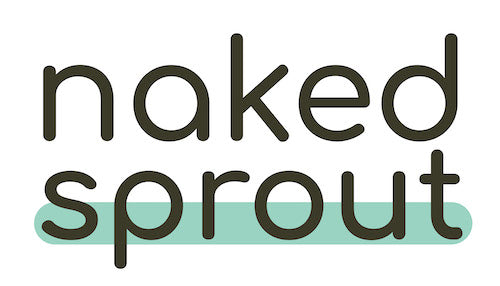Is greenwashing illegal in the UK?

Greenwashing is a simple term for a mixed bag of strategies employed by businesses who want to promote themselves as a bit (or a lot) more sustainable than they actually are.
Saying something has been “whitewashed” means that its bad sides have been quickly covered over. When we say a company is “greenwashing” the general principle is the same; they’re trying to hide the ways their products or practices are polluting behind a green “eco-friendly” facade.
It’s mucky business, but is it actually illegal?
Today we’re looking at the changing regulatory landscape in the UK, and how lawmakers are protecting customers from the rising tides of greenwash.

Understanding greenwashing
Greenwashing happens when a business presents an exaggerated or false impression of their environmental impact. This can range from outright lies to vague and unsubstantiated claims that confuse environmentally-minded shoppers.
Examples of greenwashing are all around us, with some of the most common tactics including:
Vague claims: Terms like "eco-friendly," "natural," or "green" are often used without clear definitions, or any evidence. We can see examples of this everywhere, from printer paper wrapped in green packaging with pictures of trees, to make-up sold as “all-natural”. If a company is saying their products are “natural” or “green,” the exact environmental benefits should be very clear.
Irrelevant claims: Highlighting a single “green” attribute when it’s irrelevant or minimal compared to the product’s overall environmental impact. Imagine a fizzy drink sold in a plastic bottle that’s got a large green sticker advertising it as “100% recyclable.” Most plastic bottles are technically recyclable, so this isn’t very impressive - producing and disposing of them still has a significant environmental impact, and so does making the drink inside them!
Hidden trade-offs: Focusing on one positive environmental attribute while ignoring other significant environmental impacts. We covered an example of this in a previous blog, woven textiles made from bamboo. Although bamboo is generally considered to be a sustainable raw material, the process needed to turn it into woven textiles (unlike paper and toilet rolls) is incredibly polluting and chemically intensive.

Legal framework in the UK
Overall, these examples amount to false advertising, and in the UK, false advertising is addressed through consumer protection laws. The Consumer Protection from Unfair Trading Regulations 2008 prohibits businesses from engaging in unfair commercial practices, including misleading statements, actions, and omissions.
Under these regulations, any promotional claims made by UK businesses must be clear, accurate, and substantiated with evidence. This means that, yes, making false green claims or greenwashing is a breach of consumer protection law - it is illegal.
So how is consumer protection law enforced? While much of the UK law is policed by our police service, competition law is enforced by the Competition and Market’s Authority, or CMA. Like the police, the CMA can investigate breaches of law, and if they find a company is behaving in a way that breaches the law they can bring them to court.

What about greenwashing?
So that’s false claims in general, what about false green claims, or greenwashing, specifically? The CMA have been so alarmed by the rise in greenwashing targeting UK consumers that in 2021 they released updated guidance outlining the standards they expected to see from businesses who are claiming to be sustainable.
This guidance is called the Green Claims Code. It outlines six principles for businesses to follow, adding up to a requirement that claims need to be true, properly evidenced, and meaningful to customers.
At Naked Sprout we recently audited all of our communications to make sure we’re hitting the high standards the CMA expects. We published a full break-down of the green claims code, its six principles, and how we apply them in a two-part blog series - you can go to part one here!

What happens if you are caught greenwashing?
Since publishing the Green Claims Code the CMA have started to investigate and reach court settlements with large companies who they found to be in breach of their standards. A landmark case was settled in March 2024; the CMA investigated large UK fashion companies found to be greenwashing, and imposed strict requirements they must meet to fulfil their legal obligations going forward.
And at the end of May 2024 the UK government beefed up the powers of the CMA further. The Digital Markets, Competition and Consumers Act 2024 gives the CMA the power to impose fines directly on companies, without having to go to take them to court. This means that consumer protection law, including regulations against greenwashing, are now on the same level in terms of enforcement and financial penalties as financial crime and breaches of data protection law.
Companies that fail to comply with these regulations face increased scrutiny and severe financial penalties. The CMA have the power to fine companies up to 10% of their global turnover for breaches, and directors of companies found to be non-compliant can be banned from directorship if they’re found not to have met their legal obligations.

Conclusion
While “greenwashing” is not a term in UK law, it counts as a breach of consumer protection laws, and as such it’s illegal. The Green Claims Code and the upcoming EU Green Claims Directive (more on that later!) are significant steps towards providing clarity about exactly how companies need to present their sustainability claims if they don’t want to be in breach of consumer law.
For companies that are still greenwashing, the possible consequences are huge; massive fines and loss of directorship.
Addressing the global sustainability crisis is going to take actual action, not misleading branding and clever advertising. If you’re going to talk the talk on sustainability, you need to show you’re actually walking the walk as well.
Want to try tissue products made with fully documented green claims and no greenwash?




